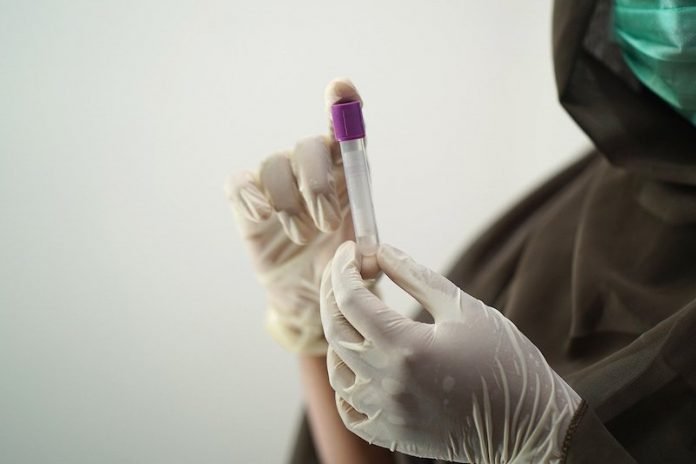
In a new study, researchers found that a first-of-its-kind rapid test could identify which COVID-19 patients are responding to drug treatments and which patients are still deteriorating and need higher doses of medication.
Another new study shows a new test that could predict COVID-19 severity.
The research was conducted by scientists in the Rabin Medical Center in Israel and elsewhere.
Studies are now showing that drugs known as corticosteroids reduce the risk of death in critically ill COVID-19 patients by one-third.
In spite of the promise of these drugs, though, doctors still have concerns about their potential side effects.
Corticosteroids work by dampening the activity of a patient’s immune system to prevent it from attacking and damaging the lungs.
Doctors therefore worry that prescribing these drugs either too early or at too high a dosage could worsen a patient’s condition by hindering the body’s ability to clear the virus.
In the study, the team demonstrated that MeMed’s 15-minute blood test for the protein interferon-gamma induced protein 10 (IP-10) could help guide treatment with corticosteroids.
Using this test, they measured IP-10 levels twice a day over the course of a month in 52 SARS-CoV-2 positive patients, 26 of whom developed severe COVID-19.
This revealed that severe patients had very high median IP-10 levels compared to the median IP-10 levels of the non-severe group.
In 17 of the severe patients treated with corticosteroids, though, IP-10 levels fell from 2,961 pg/mL to 372 pg/mL within 3-5 days.
Only two of these patients eventually died of COVID-19-related complications, and both of them exhibited IP-10 flare-ups of >1,000 pg/mL after initiation of corticosteroids.
The findings show that IP-10 testing could be used to identify patients who are not responding to standard corticosteroid regimens and who need more aggressive treatment.
Another major challenge in the fight against COVID-19 has simply been ensuring that hospitals have enough ICU beds and ventilators for patients who need intensive care.
Two different research teams have now shown that a blood test for calprotectin could predict which patients are at risk of decline, enabling hospitals to better allocate essential resources.
Using this test, one team found that ICU patients with COVID-19 had much higher calprotectin levels compared with ICU patients without COVID-19.
Another team found that calprotectin levels were higher in COVID-19 patients who required mechanical ventilation and/or died compared with other non-severe COVID-19 patients.
The second team also compared the calprotectin test’s performance with that of other tests for COVID-19 severity that are currently in use.
Out of the other tests they studied, they found that a test for C-reactive protein (CRP) was the only one that predicted both patient need for mechanical ventilation and mortality as accurately as calprotectin.
One author of the studies is Tahel Ilan Ber, MD.
The study findings were presented at the virtual 2020 AACC Annual Scientific Meeting & Clinical Lab Expo
Copyright © 2020 Knowridge Science Report. All rights reserved.



